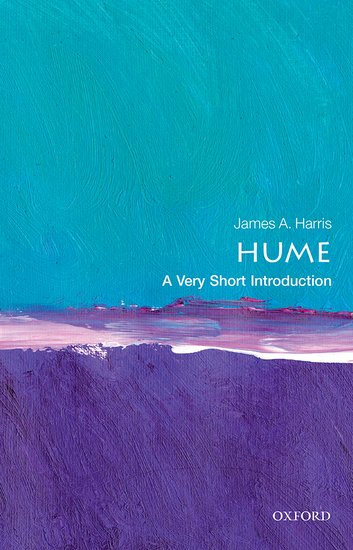Home >
A Very Short Introduction >
Hume (New Edition) (Philosophy)
A Very Short Introduction | Philosophy
Hume (New Edition)
ISBN: 9780198849780
Series: A Very Short Introduction
Hume (New Edition) (Philosophy)
A Very Short Introduction Hume (New Edition) (Philosophy) Media > Books > Non-Fiction > Education Books Expect Delays of Up to 4 Weeks| Order Below |
ISBN
9780198849780 (10-digit ISBN: 0198849788)
- Description
- Key Features
- Series Description
- Table of Contents
- Offers a clear account of the contributions to philosophy made by a key thinker in the field
- Covers Hume's main interests of human nature, morality, politics, and religion, and explores the philosophical questions that remain at the heart of the subject today
- Written by one of the world's leading experts in the field
- Weaves together biography, the historical context, and exposition of Hume's arguments
David Hume, philosopher, historian, economist, librarian, and essayist, was one of the great figures of the European Enlightenment. Unlike some of his famous contemporaries, however, he was not dogmatically committed to idealised conceptions of reason, liberty, and progress. Instead, Hume was a sceptic whose arguments questioned the reach and authority of human rationality, and who put the rivalrous passions of commercial life at the centre of his theory of human nature. He believed that the modern world was in many ways superior to the ancient world, but was acutely conscious of the threats to peace and progress posed by bigotry, factionalism, and imperialism. Today Hume's works continue to speak to us powerfully in an age of instability and uncertainty.
This Very Short Introduction presents a balanced account of Hume's thought, giving equal attention to his work on human nature, morality, politics, and religion. Weaving together biography, the historical context, and a thoughtful exposition of Hume's arguments, James A. Harris offers a compelling picture of a thinker who had no disciples and formed no school, but whom no one in his own time was able to ignore, and who has since become central to modern philosophy's understanding of itself.
Oxford's Very Short Introductions series offers concise and original introductions to a wide range of subjects--from Islam to Sociology, Politics to Classics, Literary Theory to History, and Archaeology to the Bible.
Not simply a textbook of definitions, each volume in this series provides trenchant and provocative--yet always balanced and complete--discussions of the central issues in a given discipline or field. Every Very Short Introduction gives a readable evolution of the subject in question, demonstrating how the subject has developed and how it has influenced society. Eventually, the series will encompass every major academic discipline, offering all students an accessible and abundant reference library.
Whatever the area of study that one deems important or appealing, whatever the topic that fascinates the general reader, the Very Short Introductions series has a handy and affordable guide that will likely prove indispensable.
Please note: As this series is not ELT material, these titles are not subject to discount.
Introduction
1:Human nature
2:Morality
3:Politics
4:Religion
Postscript
References
Further reading
David Hume, philosopher, historian, economist, librarian, and essayist, was one of the great figures of the European Enlightenment. Unlike some of his famous contemporaries, however, he was not dogmatically committed to idealised conceptions of reason, liberty, and progress. Instead, Hume was a sceptic whose arguments questioned the reach and authority of human rationality, and who put the rivalrous passions of commercial life at the centre of his theory of human nature. He believed that the modern world was in many ways superior to the ancient world, but was acutely conscious of the threats to peace and progress posed by bigotry, factionalism, and imperialism. Today Hume's works continue to speak to us powerfully in an age of instability and uncertainty.
This Very Short Introduction presents a balanced account of Hume's thought, giving equal attention to his work on human nature, morality, politics, and religion. Weaving together biography, the historical context, and a thoughtful exposition of Hume's arguments, James A. Harris offers a compelling picture of a thinker who had no disciples and formed no school, but whom no one in his own time was able to ignore, and who has since become central to modern philosophy's understanding of itself.
Key Features
- Offers a clear account of the contributions to philosophy made by a key thinker in the field
- Covers Hume's main interests of human nature, morality, politics, and religion, and explores the philosophical questions that remain at the heart of the subject today
- Written by one of the world's leading experts in the field
- Weaves together biography, the historical context, and exposition of Hume's arguments
Series Description
Oxford's Very Short Introductions series offers concise and original introductions to a wide range of subjects--from Islam to Sociology, Politics to Classics, Literary Theory to History, and Archaeology to the Bible.
Not simply a textbook of definitions, each volume in this series provides trenchant and provocative--yet always balanced and complete--discussions of the central issues in a given discipline or field. Every Very Short Introduction gives a readable evolution of the subject in question, demonstrating how the subject has developed and how it has influenced society. Eventually, the series will encompass every major academic discipline, offering all students an accessible and abundant reference library.
Whatever the area of study that one deems important or appealing, whatever the topic that fascinates the general reader, the Very Short Introductions series has a handy and affordable guide that will likely prove indispensable.
Please note: As this series is not ELT material, these titles are not subject to discount.
EASY ORDER FORM
PRICES LISTED INCLUDE CONSUMPTION TAX
Price Before Tax:
¥1,790


